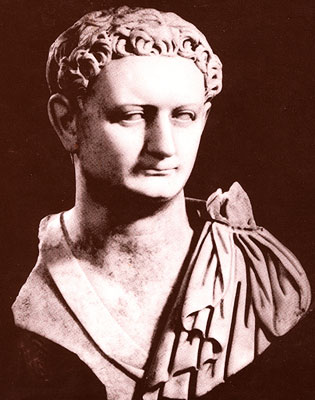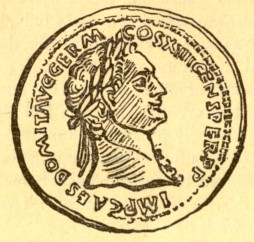Wine Law. Is it of contemporary origin? Or does it have a past as complex as its present? Does it predate written history? Is there a story behind this unique field of law? Indeed, there is—and it is one that is just as distinctive as its present-day overtones.
The research I’ve come across in the last two years suggests that wine law—at least, the first recorded version of legislation regulating the production or consumption of wine—dates back to the days of the Roman empire. As such fieldwork conveys, the first written wine laws derived from Domitian, the Roman emperor from 81 A.D. to 96 A.D. His notoriety outlives him, as during his reign he charged and sentenced his blood relatives, and many others he concluded guilty of conspiracy, for Atheism and Jewish manners, deductively unethical during his prevalence. Domitian additionally allegedly slayed his brother and executed many Roman senators to confiscate estates or for other malicious purposes. However, despite this collection of rather explicit illustrations, Domitian also succeeded in generating the first wine law in the world.
 The vine edict of Domitian in 92, which directed the interests of Italian wine growers, banned the planting of any new vineyards and ordered “half the vineyards in Asia Minor and other provinces to be uprooted” in Roman provinces. (See The Latter Rain Page: Domitian.) The vine edict “constitutes the only instance . . . of Domitian legislating for the entire Roman empire rather than for an individual province . . . .” (Brian W. Jones, The Emperor Domitian, 78.) The edict was created because of a strong outbreak of famine in the Empire and was designed to increase the production of corn in the Roman Empire by eliminating “mediocre vines occupying land that could be ploughed and was better suited for corn crops than wine-growing.” (Maguelonne Toussaint-Samat, A History of Food, 287.) Despite this early attempt to regulate the wine industry, “[t]he opposition was so strong that [the edict regulating wine] . . . could not be [properly] enforced.” (See The Latter Rain Page: Domitian.) History suggests the edict was ignored by the Roman provinces, as “the Gaulish wine-growers took their sacrifice with a very bad grace, and the legions had to be brought to enforce obedience . . . [but] the vineyards of Bordeaux survived this holocaust without suffering too much damage.” (Toussiant-Samat, supra.) However “Domitian’s edict, while probably not followed to any greater extent, stayed in effect for 188 years until [the Roman] Emperor [Marcus Aurelius] Probus repealed the measure in 280 AD.” (International Wine Regulations: An Understanding of the Challenges for Indian Wine Industry; see also Roman Times: Trade Protectionism in the Roman Empire.) Additionally, many wine historians believe the edict largely impacted the growth of the wine industries in Spain and Gaul.
The vine edict of Domitian in 92, which directed the interests of Italian wine growers, banned the planting of any new vineyards and ordered “half the vineyards in Asia Minor and other provinces to be uprooted” in Roman provinces. (See The Latter Rain Page: Domitian.) The vine edict “constitutes the only instance . . . of Domitian legislating for the entire Roman empire rather than for an individual province . . . .” (Brian W. Jones, The Emperor Domitian, 78.) The edict was created because of a strong outbreak of famine in the Empire and was designed to increase the production of corn in the Roman Empire by eliminating “mediocre vines occupying land that could be ploughed and was better suited for corn crops than wine-growing.” (Maguelonne Toussaint-Samat, A History of Food, 287.) Despite this early attempt to regulate the wine industry, “[t]he opposition was so strong that [the edict regulating wine] . . . could not be [properly] enforced.” (See The Latter Rain Page: Domitian.) History suggests the edict was ignored by the Roman provinces, as “the Gaulish wine-growers took their sacrifice with a very bad grace, and the legions had to be brought to enforce obedience . . . [but] the vineyards of Bordeaux survived this holocaust without suffering too much damage.” (Toussiant-Samat, supra.) However “Domitian’s edict, while probably not followed to any greater extent, stayed in effect for 188 years until [the Roman] Emperor [Marcus Aurelius] Probus repealed the measure in 280 AD.” (International Wine Regulations: An Understanding of the Challenges for Indian Wine Industry; see also Roman Times: Trade Protectionism in the Roman Empire.) Additionally, many wine historians believe the edict largely impacted the growth of the wine industries in Spain and Gaul.
This first notable attempt to regulate wine is predated by another legal issue affecting the wine industry. Accordingly, before Domitian’s edict, wine growers in Minervois “in the south-west of the province of Gallia Narbonensis, although in a privileged position, were already complaining of the pressure put on them (even more than on their grapes) by the proconsul of Narbonne.” (Toussiant-Samat, supra.) The proconsul, Fonteius, illicitly imposed dues on the wines from Minervois that were shipped from his quays. (Id.) “The wines then had to be sold below their proper price to remain competitive. Fonteius used the stolen money to pay for the services of a famous lawyer, none other than Cicero, who made one of his famous defence speeches on his behalf.” (Id.)
The examples above display a remarkable picture of the unremitting regulation of wine, prior to the attempt of colonial Americans to even grow wine. The patterns are evident: the legal connotations that exist today were born long ago. From regulation of yields and production to taxation to combatting wine fraud, the legal issues pertaining to wine unfolded centuries prior to contemporary regulations. Whereas past directives defined some of the matters in contemporary wine societies, our legislative measures have become increasingly more complex and forceful over time. However compounded, our modern wine laws owe their existence to the influences of historical powers, and always will.
(Image Credit: Domitian’s Evil Hour! The Nero Prediction and Domitian from ‘The Twelve Caesars’ by Suetonius, respectively.)
For more information on wine or alcohol law, TTB matters, or federal licensing, please contact Lindsey Zahn.
DISCLAIMER: This blog post is for general information purposes only, is not intended to constitute legal advice, and no attorney-client relationship results. Please consult your own attorney for legal advice.
I was recently doing some of my own research on Domitian, and it seems that Mount Vesuvius erupted in 79 A.D., it destroyed some of Rome’s best vineyards. So when Emperor Domitian came to power, he issued an order to replace large regions of land in the provinces that were currently devoted to cereal crops with vineyards. That eventually backfired, as Rome later faced food shortages due to a lack of sufficient cereal crops, leading to his 92 A.D. edict.
Really interesting history, but I think Old Testament rules governing vine growing and wine production probably predate Domitian. There are at least four basic biblical wine laws that largely continue to be followed in the production of Kosher wines: (1) you can’t use the fruit within the first three years; (2) you can’t pick the fruit every 7th years (this only applies to vines in Israel), (3) the wine can’t be made for purposes of idol worship; and (4) the wine usually needs to be pasteurized in order to be usable for all occasions (called mevushal). Interestingly, the pasteurization rule is pretty much the first distribution law since kosher wine that isn’t pasteurized can only be handled by certain people. If it leaves their hands, it’s potentially no longer kosher.
Hi Richard and Cary,
Thank you for your wonderful and insightful comments. And yes, Cary you are absolutely correct in saying the Old Testament rules predate Domitian. Thank you for pointing that out.
Lindsey